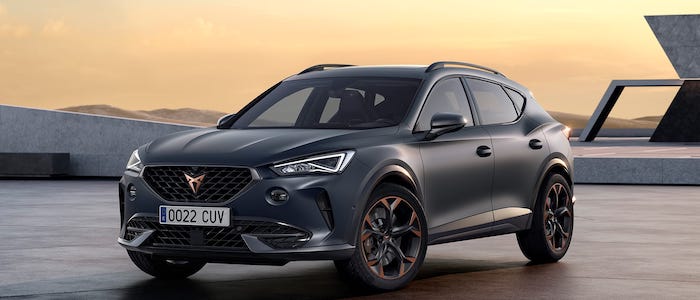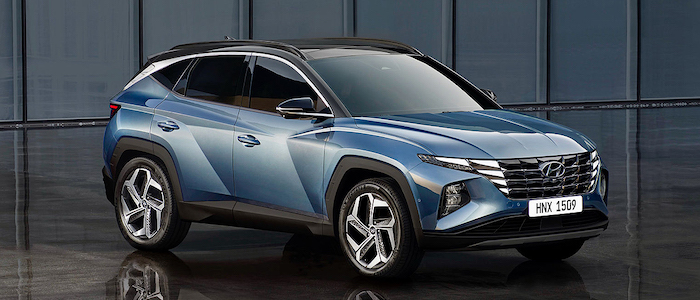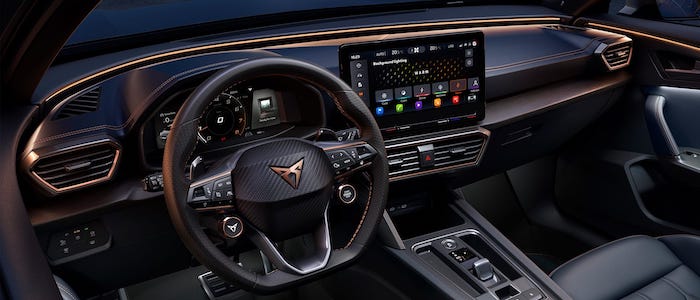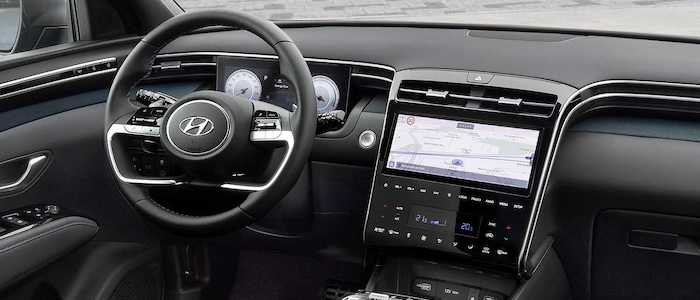Compare two cars
Compare any two cars and get our Virtual Adviser™ opinion
Dimensons & Outlines
Check vehicle history
Engine
1.6 Smartstream G4FP HEV
Performance (manual gearbox)
Performance (automatic gearbox)
Expenses
Virtual Adviser's™ opinion
Two significantly similar cars, no doubt about that. Still, each one has something different to offer. While both cars belong to the SUV segment and utilize the 5-door suv body style, one major difference is the fuel type they use. More specifically, Cupra is a petrol car, but Hyundai is powered by a hybrid engine. The first one has a Volkswagen-engineered powertrain under the hood, a 4-cylinder, 16-valves 150hp unit, while the other one gets its power and torque from a 4-cylinder, 16-valves 230hp engine designed by Hyundai.
SafetyBoth vehicles got tested by European New Car Assessment Programme (Euro NCAP), with the same number of safety stars gained in the process. Moving further on, let's take a closer look at some additional safety-related facts. Both vehicles belong to the suv segment, which is generally a very good thing safety-wise, but it doesn't do much to help us decide between the two. On the other hand, when it comes to weight, a factor that most people underestimate, the Korean car offers a considerable difference of 15% more metal.
ReliabilityI don't like generalizing things when it comes to reliability, although it does seem that both brands display similar results in faults and breakdowns, at least on all of the models level. These are the results of an independent reasearch, while our visitors describe reliability of Cupra with an average rating of 4.7, and models under the Hyundai badge with 4.5 out of 5. Unfortunatelly, I don't have enough insight that would allow me to comment in more details on the specific models level. Above it all, drivers of cars with the same engine as the Spanish car rank it on average as 4.8, while the one under the competitor's bonnet gets 3.0 out of 5.
Performance & Fuel economyHyundai is a bit more agile, reaching 100km/h in 0.9 seconds less than its competitor. Still, it lacks the power to win the top speed competition, topping at 193 kilometers per hour, 11km/h less than the other car. When it comes to fuel economy the winner has to be the Korean car, averaging around 5.9 liters of fuel per 100 kilometers (48 mpg), in combined cycle. We can't ignore that 14% difference compared to the Spanish car.
Verdict
Cupra appears just a bit more reliable, although the difference is truly marginal. The most important thing when deciding between any two vehicles should always be safety, both passive and active. In my opinion, everything taken into account, the Korean car offers significantly better overall protection, taking the lead here. From there things take a different direction, with Cupra offering somewhat better performance, just enough to call it quicker. It does come at a cost though, and that's the fuel consumption... It's not difficult to say then that if I'd need to make a choice, it would definitely be the Hyundai. Nevertheless, let's not forget that people have different preferences and needs, so what really counts is your personal feel. I'm only here to help. Also, you could use the oportunity to find out which car, everything taken into account, would be the perfect choice for you in the eyes of the virtual adviser™, among more than 12.000 different ones in our database.


































